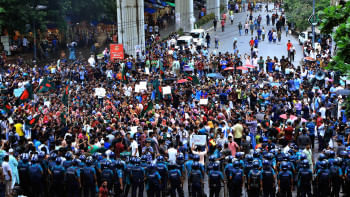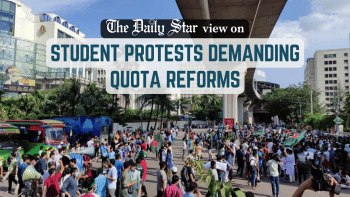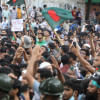Quota should exist for the marginalised only

When the protests for quota reform first began in 2018, the government agreed to negotiate with the students. However, there was a sudden derailment in how the matter was proceeding.
As I have stated before, I am personally against the quota system; I believe it should only exist for marginalised groups. If the percentage of those coming through the quota system is that significant, many meritorious students will be deprived of opportunities. It is not merely the BCS exams; the quota system determines the recruitment of teachers, doctors and various other jobs. It has an impact on many facets of life, and students are naturally struggling to accept this system which can harm them directly. Overall, this system will disadvantage many.
The matter was in the government's hands in 1972, after Bangladesh had gained independence. It was Bangabandhu who had introduced the quota system for freedom fighters in 1972, and primarily for the BCS exams. The system was mostly for freedom fighters who would get jobs based on a 100-mark oral examination. We are now learning from different ministers of state that the number of freedom fighters at present, compared to that during 1971-1972, has tripled. There is, of course, a responsibility we bear for the freedom fighters. However, it is debatable whether these benefits should extend to their descendants, and if so, for how many generations.
Many jobs remain inaccessible to many individuals because of the quota system; it is even said that if certain jobs designated for individuals under the quota system remained unoccupied, they would stay vacant. The intelligent students are falling into hopelessness. This is only natural.
In my own experience, I have seen that those who come through the quota system come through a kind of uneven competition, and they often fall behind those who have come through on their own merit. The number of those certified as freedom fighters is less than three lakh and there is still some uncertainty regarding the number. At the end of 1971, we knew the number to be around one lakh, and over the years, this has been gradually increasing. Even if we assume the number is currently three lakh, and then we further assume there are five people in each family, that means 15 lakh people are receiving opportunities that the rest of the 17 crore people are not. In reality, this has disparaged freedom fighters, diminishing their immense role in our liberation.
In the National Integrity Strategy 2012, the government was committed to rationalise the quota system, and meritorious students would also receive opportunities. However, no concession was reached. Our job sector in general is not ideal. The government continues to be one of the largest recruiters, and our private sector has not developed to that extent where jobs can be made available for a significant portion of the population.
We need to remember that though the blockades may inconvenience many segments of the population, it is not unique to the quota reform movement, with our roads becoming blocked even with the Gonojagoron Moncho or even Pahela Baishakh celebrations.
Quota reform should not be an issue. We don't want the respect owed to freedom fighters to diminish in any way, and this matter threatens to do so. I would hope that the Appellate Division looks into this.
Ali Imam Majumder is a former cabinet secretary.
Views expressed in this article are the author's own.
Follow The Daily Star Opinion on Facebook for the latest opinions, commentaries and analyses by experts and professionals. To contribute your article or letter to The Daily Star Opinion, see our guidelines for submission.

 For all latest news, follow The Daily Star's Google News channel.
For all latest news, follow The Daily Star's Google News channel. 










Comments